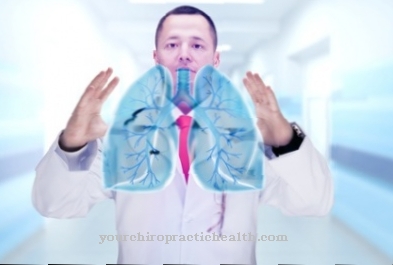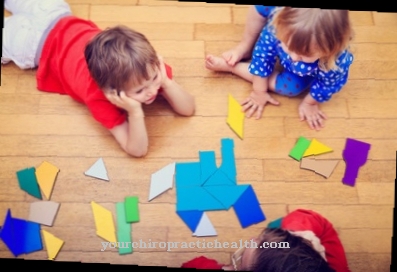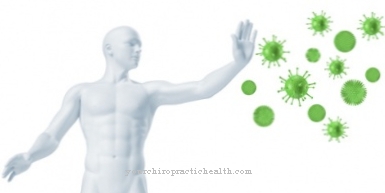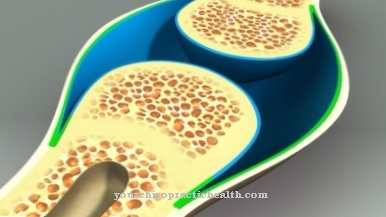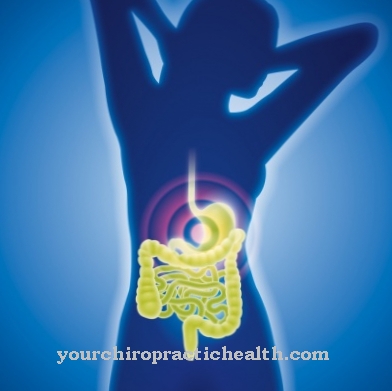The Juvenile phase describes the phase of a living being after birth and before sexual maturity. After that they are considered adult (adolescence), before that they are in the embryonic stage. In humans, the juvenile phase goes from childhood to early adolescence (pubescence).
What is the juvenile phase?

The term juvenile phase can apply to any living being and roughly outlines the period from birth to sexual maturity. In humans, the juvenile phase can be subdivided even more finely, as in many mammals. The latter often end the juvenile phase with sexual maturity, but are then still a long way from adulthood and are referred to as immature.
In humans, the juvenile phase begins, strictly speaking, immediately after birth and ends with sexual maturity and the onset of puberty. However, the juvenile phase includes further sub-phases in this classification, in humans these are in particular the baby and toddler phase as well as childhood up to the onset of puberty. Most of the time, puberty has already begun in the late juvenile phase. Accordingly, in the juvenile phase, people go through a series of formative physical and mental developments. In addition, he is far from adult after graduation. Only in the course of puberty does he develop physically and mentally into an adult.
Function & task
In the juvenile phase, developments take place that will shape people throughout adulthood. He learns his basic attachment behavior in the infant phase (see for example bonding), disorders can have a lifelong negative effect on his ability to bond or the relationship with his own children. He learns to move his body purposefully and deliberately, gross and fine motor skills develop over the next few years. Early childhood reflexes signal the rapid development of the central nervous system.
Since humans are born extremely prematurely into the juvenile phase in comparison to other mammals, many developments happen very quickly and in leaps and bounds. In the toddler phase, the learned attachment behavior deepens, and the child runs and speaks more and more confidently. The cognitive abilities develop. Psychologically, people develop in a formative way during the juvenile phase.
For example, if babies still assume that their needs are the same as those of everyone else around them, toddlers learn that other people do not always want the same thing as them.
The juvenile phase shapes the social behavior of the child through the parents and the contact with friends. At the end of the juvenile phase, many children already have a very clear, in parts very adult, picture of the world, can articulate themselves selectively and have been moving completely independently for years. When the juvenile phase turns into puberty, they are physically and psychologically developed to such an extent that they basically only grow to their final height, undergo a few final physical and mental developments and are then considered to be adults. The juvenile phase is therefore the time in which a person develops so far physically and mentally that only sexual maturity is missing as an essential factor.
Illnesses & ailments
Since the juvenile phase is so formative in physical and psychological terms, serious physical and mental undesirable developments and illnesses can occur. In many cases, an event occurs during the juvenile phase that can only trigger an illness in years or decades.
Some hereditary diseases only become noticeable in the infant and toddler phase, and they may not have been noticed during pregnancy. These include, for example, Pompe's disease, phenylketonuria or hemophilia. A number of food intolerances, allergies and intolerances also often develop during the juvenile phase and are usually not life-threatening, but require treatment.
Illnesses that occur during the juvenile phase include childhood cancer, which fortunately is rare. Less rare are undesirable developments that can have innate, acquired or external causes and triggers. Disturbances of the organ function often remain undetected until the organ is responsible for a development and this is disrupted.
Towards the end of the juvenile phase, when puberty occurs too early, too late or not at all, problems with the thyroid or pituitary gland become noticeable, as they are responsible for the production of the hormones that trigger puberty.
Physical disorders and anomalies in the juvenile phase are so risky because they can influence physical maturation processes in such a way that permanent damage occurs. If puberty did not occur, it would not be possible to make up for it in adulthood, not even through the subsequent administration of hormones. Permanent damage can be underdevelopment of the genital organs up to infertility.
In addition to the spectrum of physical illnesses, mental damage can also occur during the juvenile phase. Attachment disorders, trauma or similar formative experiences often do not have a detrimental effect on an adult, but they become firmly established in the subconscious of a person. You do not have to influence him immediately, but they show up in later life through recurring problems or disruptive behavior patterns. Since they dig themselves into the subconscious in the juvenile phase, depth psychological treatment is required to make such damage recognizable at all. The infant and toddler phase in particular is problematic in this context, as the patient later remembers this period of his juvenile phase the least consciously.

